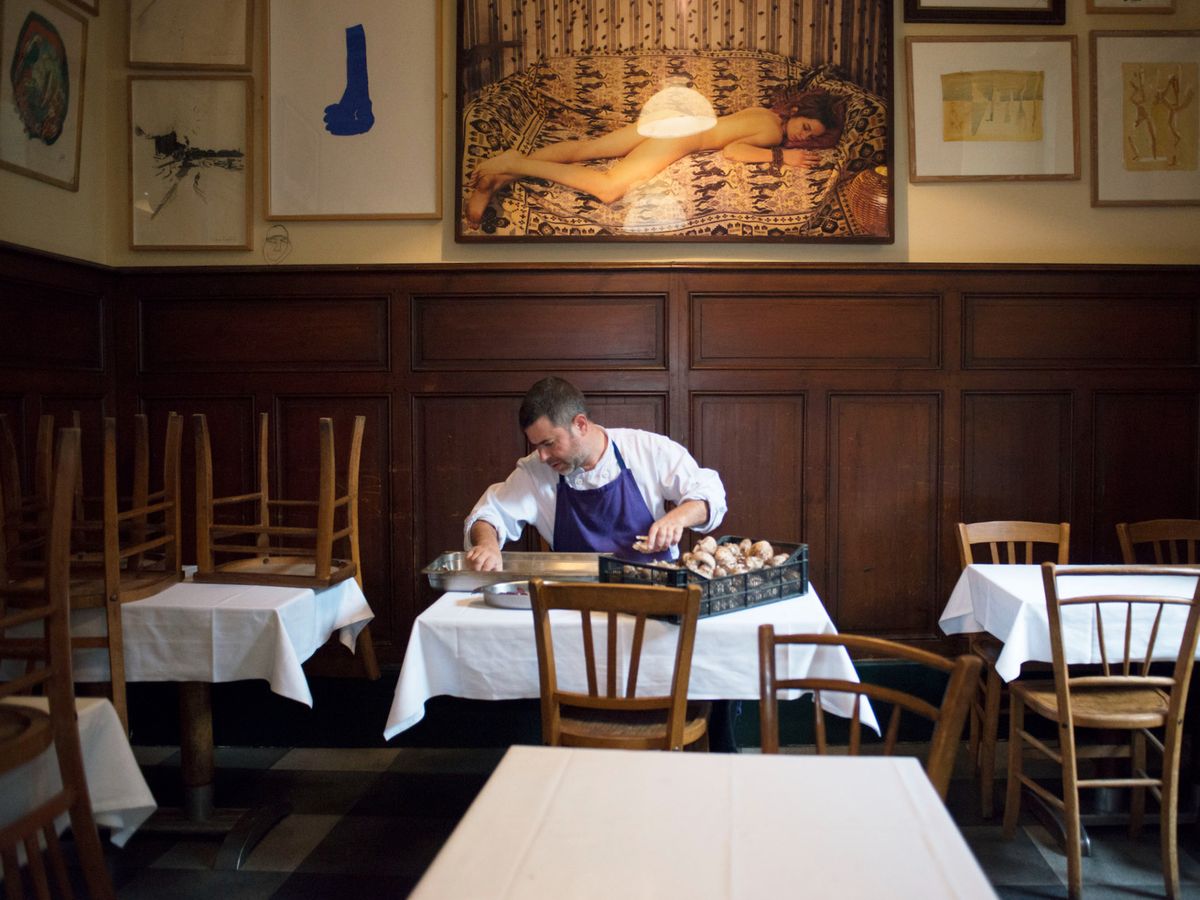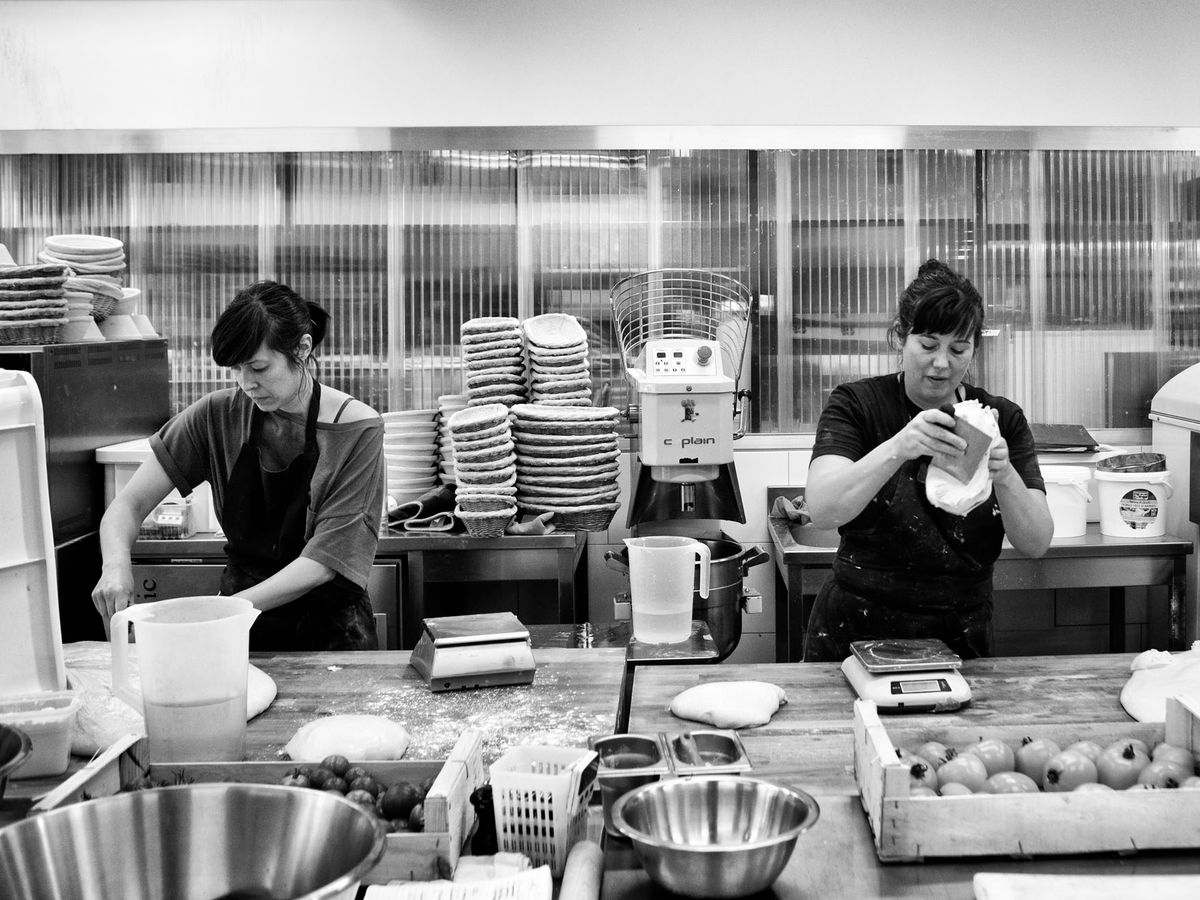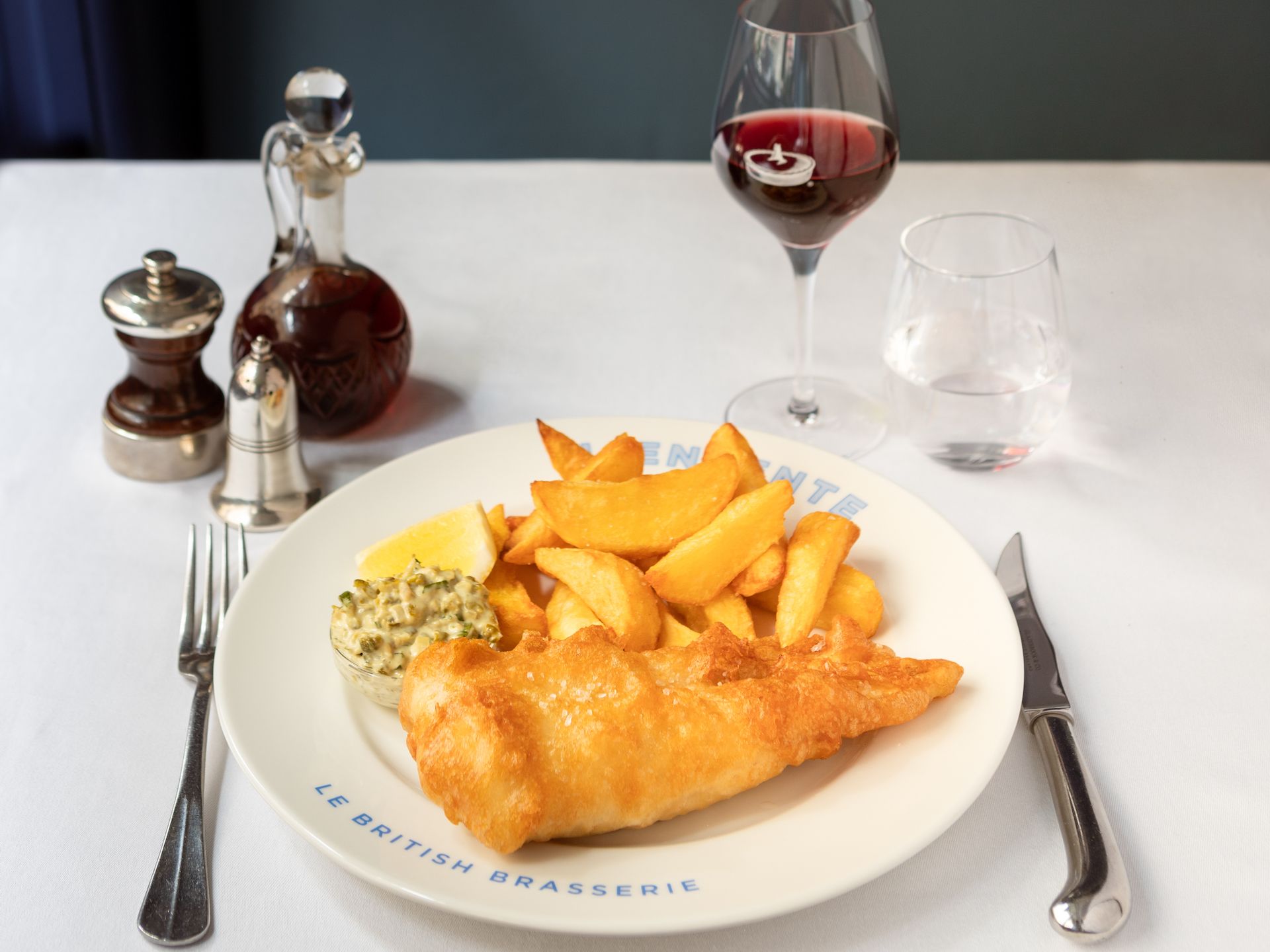1+1=2, the earth is round, English food is terrible. In the land of culinary enlightenment, French children grow up believing that even their school lunches are better than anything you might eat on the other side of the English Channel. Jelly, Marmite and boiled meats get covered in all kinds of sauces (mint sauce in the Asterix comic book series, dripping with vitriol when you listen to Chirac), reminding us just how much our neighbor’s cuisine is lacking in taste and class. For decades now, it’s been one of the most beloved running jokes in French pop culture, rearing its ugly head in everything from comedy sets and song lyrics to comics and commercials. The shortest jokes are often the best ones, and the French seem to have an endless supply of them…
It’s hard not to notice a “slight” tendency towards arrogance in that attitude, especially when it comes to cuisine. So, is there any truth behind the cliché? According to British sociologist Stephen Mennel, British cuisine has had a bad rap since the Victorian era. What’s to blame, exactly? Any number of factors: English Puritanism, which condemned the pleasures of the flesh; the massive number of Anglo-Saxon peasants leaving the countryside for big cities, where poor workers were fed mediocre cuisine that had already been industrialized at that point; and, in contrast, the general success of French cuisine.
That’s just the way the cookie crumbles
For Harry Lester, the English chef behind the incredible restaurant Le Saint Eutrope in Clermont-Ferrand, these stereotypes also took root during the Second World War: “Rationing during the war destroyed British cuisine. The French were under the impression that post-war British cooking was awful, and they weren’t wrong.” Have you heard the popular saying that in hell the cooks are English, while in heaven the cooks are French? That’s a quip passed down from the 19th century (and also largely from the 20th), when France enjoyed a position of culinary dominance. Auguste Escoffier may well have included a handful of British recipes in his legendary Guide Culinaire in 1903, but the press of the day still described English cuisine as “heavy, clumsy, bland,” “pallid,” “bad,” “a pitiful thing,” “mundane, dreary and impressively mediocre.” Just to name a few of the insults hurled at it.

The British chef Harry Lester at Le Saint Eutrope, in Clermont-Ferrand.
© Martin Bruno
And Her Majesty’s chefs who have come to work in France can attest to the persistence of these clichés. “When I first arrived, what I heard most often in restaurants was this sense of disbelief from customers when they learned that the chef was English,” says Alex Mahood, the former chef at Jones. It’s the same old tune for Edward Delling-Williams, the former chef at Le Grand Bain, who will soon be running his new restaurant The Presbytere. He remembers a group of customers innocently asking: “How did you learn to cook so well if you’re from London?”
The New Wave
Paradoxically, throughout the 19th century, it was considered rather sophisticated to dine at restaurants serving English cuisine, which could be found all over Paris, from the chic Café Anglais on the Boulevard des Italiens to the more discreet Katcomb, a veritable foodie haunt before it was cool, where people would go to devour roasted meats served rare (a novelty at the time), ales and plum pudding.
Is history just an eternal return? In the pages of the Guide Fooding ever since its creation 21 years ago, and in the culinary press for a few years now, British chefs have experienced something of a comeback. And for good reason: the Brits working in French kitchens are seriously talented. Voted Le Fooding’s Best Chef of 2021, the chef of Robert, Daniel Morgan, was rather apprehensive about working in a French restaurant when he first arrived in Paris six years ago: “I was pretty nervous and stressed out, but I have to say, I was pleasantly surprised at the welcome I received. I was treated kindly and I felt quite accepted into the Parisian scene.”
“I haven’t heard any jokes about the fact that I’m an English chef for at least eight years now,” exclaims Anna Trattles, the co-founder of the Ten Belles bakeries, who trained, amongst others, under Rose Carrarini of Rose Bakery, where scones, carrot cake, rice pudding and fruit crumbles have been sold since 2002. Rose adds: “The outlook on English cuisine has changed. People travel more and are a lot more open-minded than before. There is no longer this apprehension of British products… People trust us now!”

Alice Quillet and Anna Trattles in the Ten Belles workshop.
© Martin Bruno
Back to basics
Is it a generational thing? If Alex Mahood is still struggling to get his partner’s 95-year-old Basque aunt to try his lamb with mint sauce, he assures us that the rest of her family loves it. And when it comes to British classics, Instagram went crazy for the Christmas pudding made by Gareth Storey (ex-Auberge de Chassignoles and Martin) and sold by the chef for the holidays: “I received a ton of requests for this old Victorian dessert that is relatively unknown in France, but which I love and have a lot of fond memories of… I was very happy and touched that the French were so enthusiastic about trying it.”
The cherry on top of this pudding? Ever since 2017, the French capital has opened its arms to a veritable embassy of British flavors via L’Entente, the restaurant run by Oliver Woodhead. Shepherd’s pie, beef Wellington, devilled kidneys, sticky toffee pudding… All the classics of English cuisine are proudly represented there. “Customers come to our restaurant wanting to be surprised and wowed by quintessentially English dishes, some of which are a bit edgy, and it’s been a success!”
And Brexit didn’t succeed in crushing this new curious spirit, which is stronger than any attempt by the country to close in on itself. Without the British, there would be no IPA or unpronounceable Worcestershire sauce, no Rose Carrarini or Harry Lester. And who would want to dine in a world without them? Certainly not Le Fooding, which owes much of its dynamic outlook to the British bistronomy scene. More than just a restaurant model, it was a revelation, which continues making inroads from Paris to Marseille, stopping off in Auvergne along the way. Proof that in the kitchen, nothing is constant, so long as we are willing to swallow old clichés that have been chewed half to death.
Matthieu Aussudre is a journalist and independent researcher in history of food. When he doesn’t have his nose buried in a book, he’s eating or drinking a glass of wine. It goes without saying, he loves fish and chips and shortbreads.

